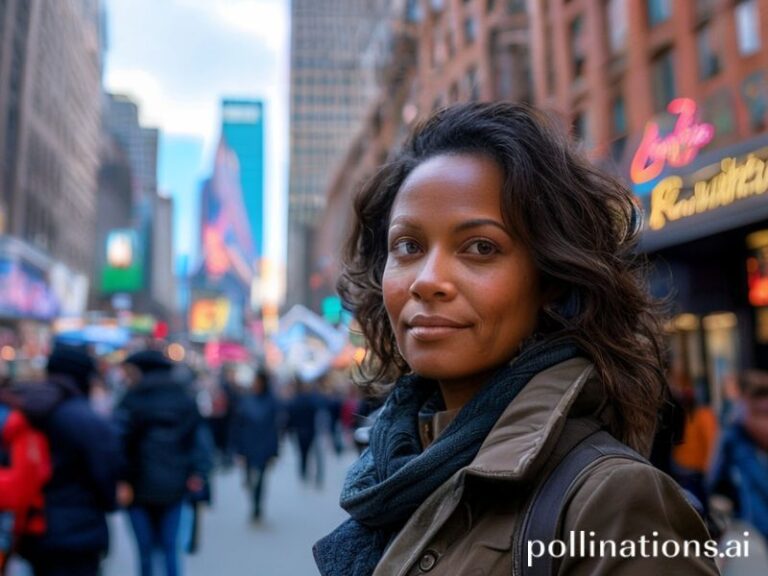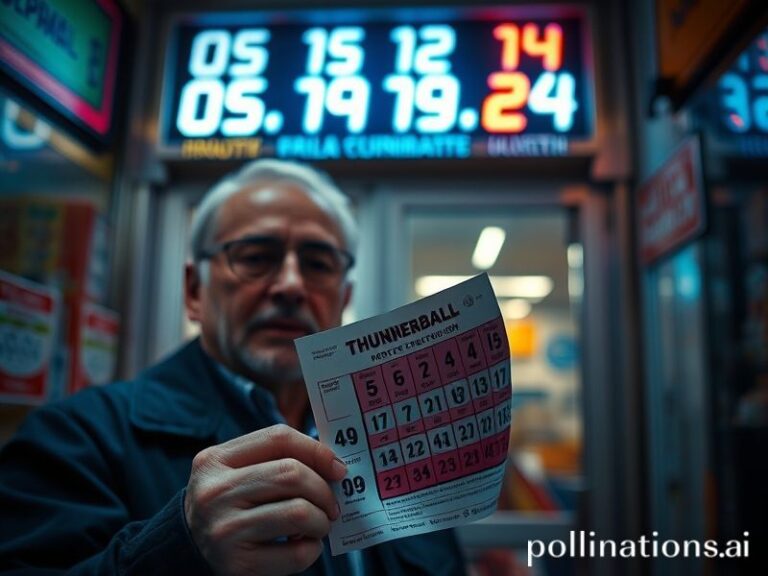Liv Tyler: The Last Untainted Global Icon in an Age of Collateral Damage and Crypto Scams
Liv Tyler: The Last Global Sweetheart in an Age of Collateral Beauty and Actual Collateral Damage
By “Our Man Somewhere Between Airstrip One and the Duty-Free”
The world first met Liv Tyler on a 1995 Italian Vogue cover, back when NATO still thought the Balkans were a quick weekend intervention and the euro was just a rumor whispered over espressos. Nearly thirty years on, she remains the only American export that hasn’t been tariffed, Twitter-cancelled, or turned into a crypto scam—an achievement roughly as likely as finding a working McFlurry machine in the greater Damascus area.
Born in New York to a power-ballad father and a Playmate mother, Tyler was geopolitically pre-sanctioned for fame. By 1999 she was Arwen, an immortal elf dispensing hope in New Zealand’s green-screen republic—a place now better known for billionaires buying apocalypse bunkers with views of Mordor. The Lord of the Rings trilogy grossed nearly $3 billion worldwide, proving that what the planet really wanted wasn’t peace in the Middle East but three more hours of elven cheekbones arguing about jewelry.
Yet Tyler’s peculiar longevity lies in how little she’s tried to monetize the apocalypse. While contemporaries pivoted to wellness gummies or authoritarian soft power, she lent her face to Givenchy and UNICEF in equal measure—an ambassadorial balancing act that somehow appeases both Parisian aesthetes and war-zone logistics officers. In 2022 she flew commercial to Kyiv, which in celebrity terms is the equivalent of taking the metro to a Vogue shoot: theoretically possible, practically unheard of.
The actress’s recent move to London—official reason: “family and theatre,” unofficial reason: a discreet exit from the American experiment—places her at the intersection of three failing empires: Brexit Britain, late-stage Hollywood, and whatever we’re calling the metaverse now. She’s been spotted pushing a pram past Pret A Manger oligarchs and queueing for oat-milk lattes behind Russian dissidents and Saudi art students. It’s as if the entire 1990s dream of liberal globalisation has condensed into one polite brunette waiting politely for caffeine.
Meanwhile, Middle-earth itself has been rebooted as a billion-dollar Amazon series filmed in the tax haven formerly known as the United Kingdom. Tyler is conspicuously absent, perhaps because even immortal elves draw the line at non-fungible storylines. Instead, she’s executive-producing a climate-change children’s show, which is either a sincere attempt to save the biosphere or the most sophisticated piece of legacy-branding since the British royal family started planting trees they’ll never see bloom.
Critics will say her career peaked two decades ago. Those critics have clearly never tried shipping heirloom tomatoes from Beirut to Reykjavik without a carbon offset. Tyler’s global value now is symbolic: the last millennial pretty face untainted by NFTs, hostage videos, or presidential debate memes. In a marketplace where attention is mined like coltan, she’s managed to remain a rare earth mineral—valuable precisely because no one’s figured out how to weaponise her.
The broader significance? While nations weaponise nostalgia and oligarchs purchase citizenships the way teenagers buy skins, Tyler persists as a gentle reminder that soft power once came with actual softness. Her face still launches a thousand lifestyle editorials, but the ships are now cargo freighters stuck outside the Port of Los Angeles, waiting for dockworkers who are live-tweeting their hemorrhoids.
Conclusion: As COP summits collapse into TikTok dances and billionaires race to leave the planet they helped overheat, Liv Tyler remains—astonishingly—on brand. She is the final proof that grace is possible even when the world is not, a living rebuttal to every doomsday algorithm. And if that sounds like sentimental claptrap, remember: sentiment is now the scarcest resource on Earth. Invest accordingly.







